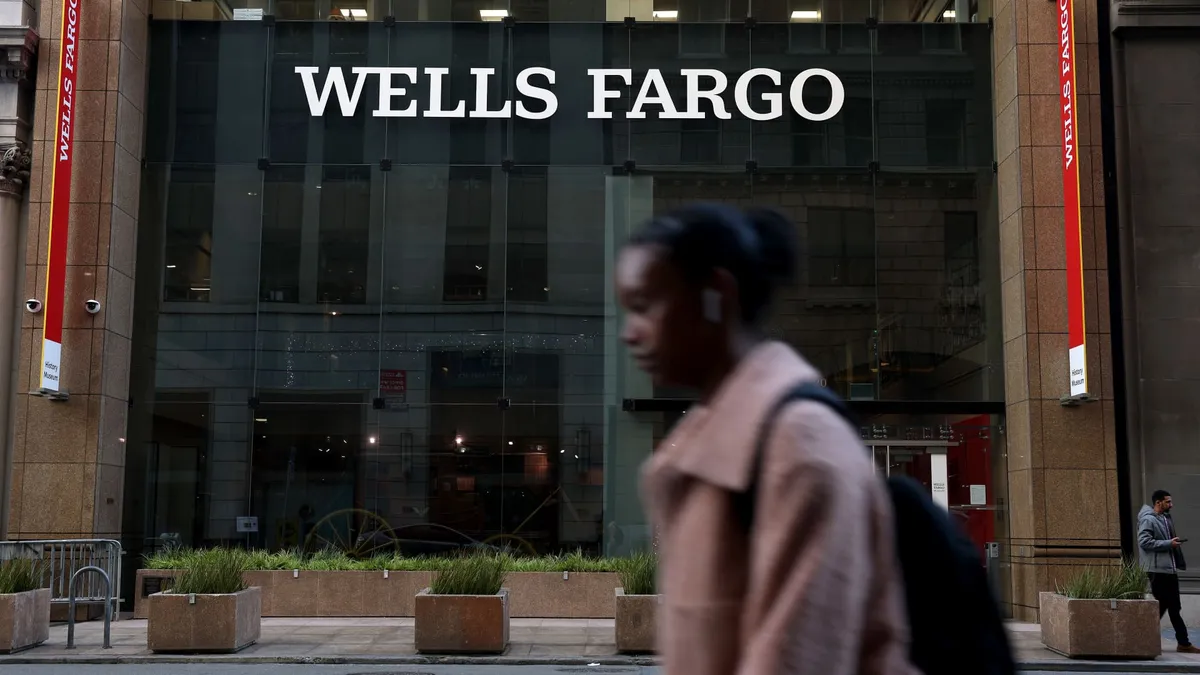
Wells Fargo is experiencing a significant transformation, as highlighted by financial experts like Jim Cramer and various Wall Street analysts. With the recent decision by the Federal Reserve to lift the bank's $1.95 trillion asset cap, there are optimistic forecasts regarding the future of this major financial institution. This cap, which had been in place for seven years, stemmed from the bank's past misconduct, including the infamous fake accounts scandal that emerged in the 2010s.
Following this pivotal change, notable firms such as Bank of America and Morgan Stanley have raised their price targets for Wells Fargo shares. Bank of America increased its forecast from $83 to $90 per share, while Morgan Stanley adjusted its target from $77 to $87. Other firms like Piper Sandler and Evercore ISI have also revised their price expectations upward. Our team has followed suit, raising our target to $90 per share from $80.
Jim Cramer described this development as a "watershed moment," emphasizing that the removal of the nearly $2 trillion asset cap opens the door for the bank to grow its deposit base, invest in high-growth sectors, and reduce compliance costs that had previously burdened its operations. Despite this promising news, the market's reaction was relatively muted on Wednesday, with Wells Fargo shares rising less than 1% to around $76. This subdued response may be attributed to investors having anticipated this announcement, viewing the asset cap's removal as a likely outcome.
Since the Election Day in November, Wells Fargo has outperformed many of its banking peers, particularly as investors speculated on a more favorable regulatory landscape under President Donald Trump's administration. Earlier this year, the bank also had various penalties related to past scandals alleviated, further paving the way for growth. Regardless of the immediate stock performance, Cramer urged investors to recognize the fundamental shift this represents for the bank and its CEO, Charlie Scharf.
CEO Scharf, who has been at the helm since 2019, echoed Cramer's sentiments in an exclusive interview with CNBC. He characterized the asset cap's removal as a highly significant event, particularly in terms of expanding the bank's customer deposits. According to estimates, Wells Fargo missed out on approximately $400 billion in deposits over the past seven years due to regulatory constraints. Scharf noted that this change is not just about increasing deposits; it also enables the bank to enhance its advisory and investment services capabilities.
Cramer believes that with the cap removed, Wells Fargo can now better compete with its peers on Wall Street. Before the cap was imposed, major banks were closely aligned in terms of performance. However, Wells Fargo has lagged behind during the cap's duration. Cramer expressed confidence that Scharf will target competitive growth areas, particularly in commercial banking and credit cards.
Although changes won't happen overnight, management has been strategically preparing for a turnaround for years. This includes making senior-level hires in its corporate and investment banking division, which will help diversify the bank's revenue streams beyond interest-based income. Despite anticipated savings from reduced compliance costs, Wells Fargo intends to continue investing in compliance measures.
As Scharf pointed out, the key difference now lies in the perception of Wells Fargo. He stated that the bank has often been viewed as being in the "penalty box," but the asset cap removal marks a significant shift in this narrative. While there is no immediate transition to aggressive growth strategies, the bank is well-positioned to capitalize on new opportunities in the marketplace.
As a reminder, Jim Cramer's Charitable Trust is currently holding Wells Fargo stock. Subscribers to the CNBC Investing Club with Jim Cramer will receive notifications before any trades are executed, reflecting Jim's disciplined approach to investing.
For more insights and stock updates, consider joining our investing community. Please note that all investment activities are subject to the terms and conditions outlined in our policy, and no specific outcomes or profits are guaranteed.